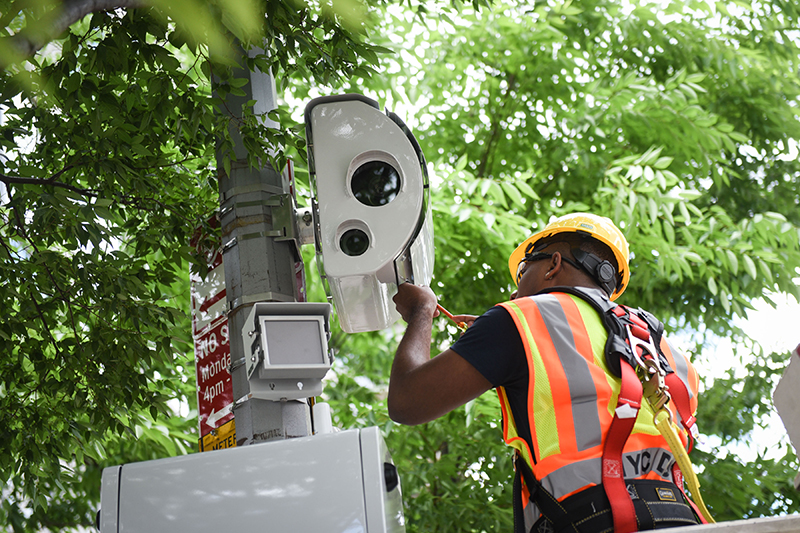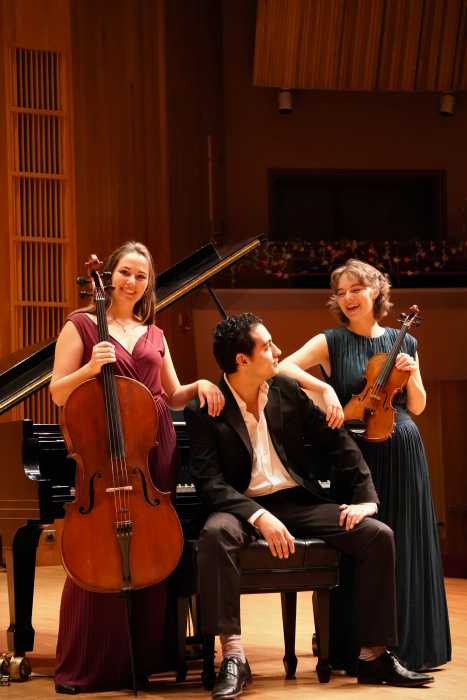
(NYC DOT Vision Zero)
Dec. 22, 2020 By Allie Griffin
Mayor Bill de Blasio wants the nearly 1,000 speed cameras placed throughout the city to be able to ticket drivers going over the limit 24 hours a day, seven days a week.
De Blasio called on state lawmakers to allow New York City to run speed cameras around the clock during a Tuesday morning press briefing.
Currently, all 950 speed cameras spread across the city are turned on from 6 a.m. to 10 p.m. on weekdays — as permitted by state law. The cameras are located in all 750 school zones throughout the five boroughs.
The cameras capture photos of drivers going more than 10 miles per hour above the speed limit. The city then mails $50 tickets to the registered owner of the car caught speeding.
The state law only allows cameras to operate at their current times. The city needs state legislators to expand the law to allow the increased hours of operation.
De Blasio, citing an increase in traffic collisions this year, wants the cameras to be able to ticket drivers at any time of day or night.
“There have been too many crashes — in fact we’ve seen that rate go up in an alarming fashion,” de Blasio said.
He said more drivers have been speeding on the emptier streets during the pandemic which has caused an uptick in collisions.
“We have to do some different things right away to address this situation,” de Blasio said. “We’re appealing today to New York State, to the legislature, to help us do more to save lives.”
De Blasio said speed cameras will help save lives as a large number of crashes this year were the result of speeding on weekends and during overnight hours — when speed cameras are shut off.
Roughly 36 percent of non-highway fatalities occurred in school-camera zones during hours when the cameras were inoperable, according to City Hall numbers.
At locations where speed cameras have been installed, speeding has reduced by more than 70 percent on average, the latest data from the Department of Transportation (DOT) shows.
De Blasio said the cameras being turned on at all times would help prevent future crashes.
The de Blasio administration has greatly ramped up the use of speed cameras over the past few years as part of its Vision Zero initiative for safer streets.
During 2020, the administration installed 720 new speed cameras — more than had been installed in the previous six years combined.
The DOT will continue to install about 60 cameras per month next year to reach its goal of 2,000 cameras by the end of 2021. If reached, New York City would have the largest speed camera program in the country.
De Blasio said the NYPD will also be out in full force to ticket speeding drivers. Officers will also be out during the holidays to crack down on drunk driving.
3 Comments







Speeding tickets are not the way to revenue. In fact, it’s much more lucrative to go after parking violations as there are a lot more. Speed cameras concentrate on safety issues as the difference between 5 mph can mean life or death to an accident victim.
The City is so far in debt and is desperate to try any means to confiscate our hard earned money.
The city in financial shambles: federal aid cut, MTA on the brink of collapse, retail businesses failing at unprecedented numbers, and more residents unemployed than in recent memory, and this idiot wants to solve the financial crisis by increasing speeding ticket revenue. Way to think big.